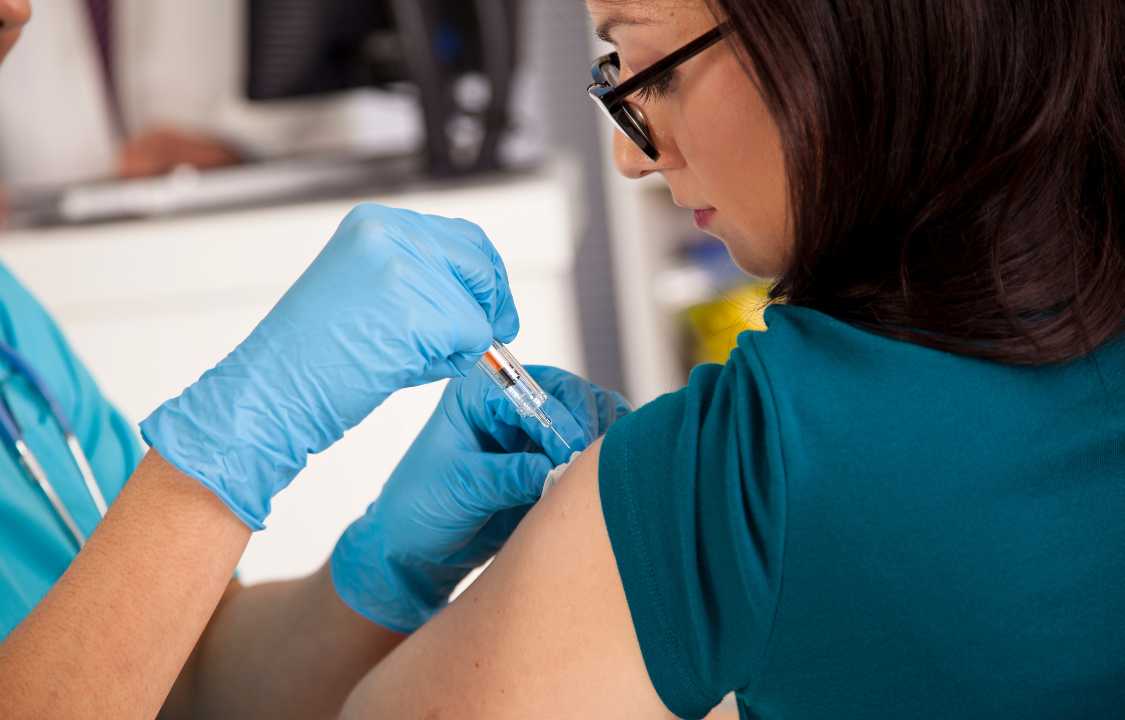Flu, Medical Care
How Long Does It Take for the Flu Shot To Be Effective?
Take proactive measures to prepare for the yearly flu season by prioritizing the acquisition of your flu shot. This crucial safeguard, known as the influenza vaccine, plays a pivotal role in shielding you from an array of influenza virus strains. Operating within the confines of the United States, all flu vaccines adhere to the “quadrivalent” classification, indicative of their comprehensive defense against four distinct flu viruses: the influenza A(H1N1) virus, the influenza A(H3N2) virus, and two variations of influenza B viruses.
The procedure for administering most flu vaccines is straightforward, involving a routine needle injection, typically delivered to the arm. Alternatively, you have the option of the nasal spray flu vaccine. It cannot be overstated that embracing the flu vaccine stands as the paramount strategy for drastically diminishing your vulnerability to the debilitating symptoms associated with the flu. By making this choice, you equip yourself with a robust defense against the potential hardships posed by the flu virus.
Why You Should Get the Flu Shot
While the flu is a common ailment, it should not be underestimated due to its potential severity. In certain individuals, it can result in hospitalization and, in some unfortunate cases, even death. According to data from the Centers for Disease Control and Prevention (CDC) spanning from 2010 to 2020, the flu has contributed to the following annually:
- 9 million to 41 million cases of illness
- 140,000 to 710,000 hospitalizations
- 12,000 to 52,000 fatalities
It’s essential to bear in mind that the impact of each flu season can vary, affecting people differently. A case in point is the 2021-2022 influenza season, influenced by COVID-19 restrictions like social distancing and mask-wearing. The CDC estimated that during this season, the flu was linked to 9 million illnesses, 4 million medical visits, 100,000 hospitalizations, and 5,000 deaths.
If you’re contemplating the necessity of the flu vaccine, the unequivocal response is yes—100% yes. The CDC advocates for everyone aged six months and older to receive the vaccine annually.
Dr. Jean Moorjani, a pediatrician at Orlando Health Arnold Palmer Hospital for Children, emphasizes, “We consistently encourage everyone to secure vaccination at the earliest opportunity.”
Particularly crucial is vaccinating individuals who face an elevated risk of severe flu complications. Those aged 65 and above, as well as those with underlying health conditions such as chronic lung disease, asthma, and kidney disease, are at a heightened risk of experiencing grave flu-related complications.
How Long Before the Vaccine Works
To ensure your safety during the flu season, it’s optimal to receive your vaccine promptly each autumn. However, it’s important to note that there’s one limitation to the flu vaccine: it doesn’t provide instant immunity against the flu. Instead, the vaccine requires a certain duration to take effect.
“It generally takes around two weeks after vaccination for your body to generate sufficient antibodies that offer protection against the flu,” explained Dr. Moorjani. Consequently, there exists a potential for the flu virus to still affect you within this initial two-week period.
Given the necessity of allowing your body this two-week window to develop the necessary flu antibodies, it’s critical to have your vaccination administered before October draws to a close. Dr. Moorjani emphasized the significance of this timing, as no one would want to confront the peak of the flu season, which typically gains momentum in November and December, without adequate protection in place.
Other Precautions
Due to the necessary two-week incubation period for the vaccine’s efficacy, it becomes crucial to adopt additional measures to prevent the flu. Ensuring sufficient sleep, adhering to a balanced diet, and maintaining your exercise routine are essential for bolstering your immune system. This preparation will prove invaluable should you come into contact with the flu virus.
Moreover, practicing consistent hand hygiene remains imperative. Regularly washing your hands with soap and water, or employing hand sanitizer when a sink isn’t available, is vital—particularly before eating or touching your eyes, nose, or mouth. These entry points are avenues through which flu viral particles can infiltrate your body and trigger an infection. Even after the completion of the two-week waiting period, these proactive anti-flu strategies should never be neglected.
How Effective the Flu Shot Is
The effectiveness of the flu vaccine exhibits a dynamic nature that manifests differently from one season to another. This variability is attributable to a multitude of factors that collectively shape its impact. Among these factors are the age and health status of the individual receiving the vaccine, as well as the intricate interplay between the viral strains present within the vaccine and those actively circulating in the population.
In circumstances where the flu vaccine’s viral composition aligns closely with the prevalent strains of influenza viruses, scientific studies have demonstrated a notable reduction in the risk of falling victim to flu-related illness. This reduction can range between approximately 40% and 60%, indicating a substantial level of protection conferred by the vaccine. This statistic underscores the vaccine’s potential to play a pivotal role in mitigating the potential severity and prevalence of flu infections during periods when a harmonious match between the vaccine and circulating viruses is achieved. However, it’s important to recognize that this percentage is not absolute and can vary due to the aforementioned factors, highlighting the dynamic nature of the influenza virus and the challenges associated with vaccine development and efficacy assessment.
A Quick Review
Therefore, for optimal well-being during flu season, avoid postponing your flu vaccine. Remember that it takes up to two weeks for the vaccine’s effectiveness to fully develop. Hence, it’s essential to obtain the vaccine before the flu season’s peak. Furthermore, during the subsequent two weeks following your vaccination, prioritize frequent handwashing, maintain a nutritious diet, and engage in regular exercise to ensure your continued health.

